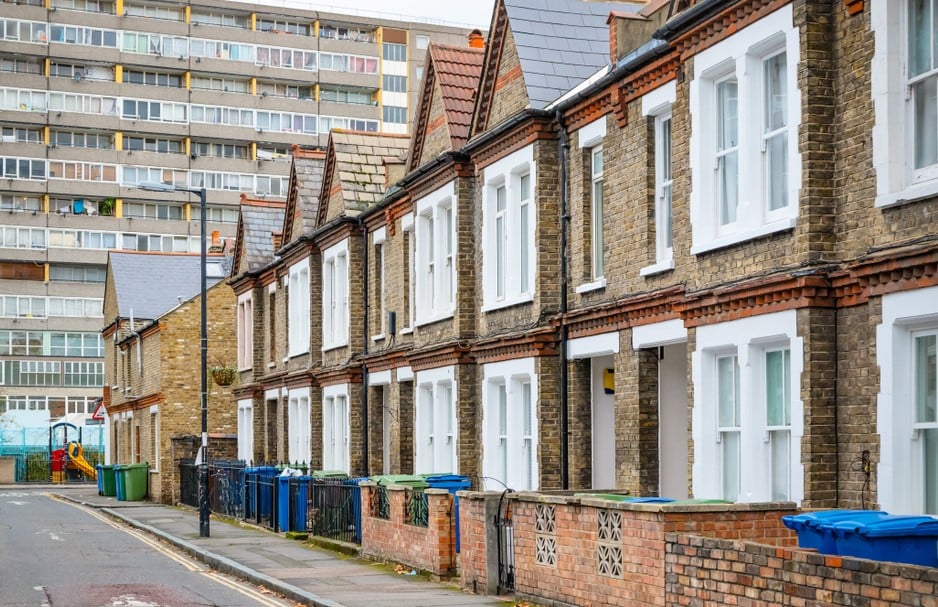
0:05 AM, 27th June 2023, About 2 years ago 2
Text Size
Millions of renters are feeling the pinch as landlords transfer their rising mortgage expenses to their tenants, resulting in unprecedented rent hikes, housing campaigners say.
They warn that the Bank of England’s recent decision to raise the base rate to 5% has far-reaching consequences beyond merely affecting homeowners’ and landlords’ mortgages, potentially sparking a larger crisis in housing affordability.
Now, one leading homelessness charity has raised concerns that hundreds of thousands of renters may struggle to keep up with their rent payments, putting them at risk of losing their homes.
The chief executive of Crisis, Matt Downie, told The Guardian: “As mortgage costs increase, we are seeing these costs passed on to tenants and, at a time when energy bills and food costs are so high, the pressures on renters are unsustainable.
“Low-income renters face a catastrophe – they can’t rely on housing benefit as it’s been frozen since March 2020 and is completely inadequate.
“There isn’t nearly enough social housing to go round and over a million households are on waiting lists for the few genuinely affordable homes we do have.”
The Office for National Statistics revealed last week that private rents have risen at an annual rate of 5% in April, marking the steepest increase since records began in January 2016.
Also, rents outside of London have experienced the quickest growth since records started in 2006.
This surge in rental costs comes as landlords struggle with their own escalating expenses and opt to raise rents or sell their properties, often forcing tenants to relocate.
Citizens Advice says numbers of people wanting help with s21 ‘no-fault’ evictions have more than quadrupling since 2019 to reach an all-time high.
UK Finance says that more than half of landlords in England have a BTL mortgage and that two million BTL mortgages are currently outstanding, with around 230,000 set to obtain a new mortgage at much higher rates.
The Institute for Fiscal Studies (IFS) has cautioned that rising interest rates impacting landlords’ borrowing costs are partly responsible for the significant uptick in rental prices.
The IFS also noted that even before the pandemic, renters were already paying an average of 24% more than homeowners with mortgages.
Darren Baxter-Clow, a policy adviser at the Joseph Rowntree Foundation poverty charity, told the newspaper: “Those now paying higher rates in the mortgage market are experiencing what private renters have been experiencing for years now, with almost zero interest from politicians for addressing affordability crisis in private renting.
“The debate needs to be broader in housing market. The rental side is where some of the real pressures will be.”
However, the chief executive of the Resolution Foundation, Torsten Bell, says that it is ‘nonsense’ that higher mortgage costs for BTL landlords were driving up rents.
He says that rents are determined by wages and supply and demand for housing, and, on Twitter, he wrote: “Of course, higher buy-to-let mortgage bills may make landlords want to raise rents.
“But that’s different to why they are able to do so – which is rising wages.”
Previous Article
Are you committed to becoming financially free?Next Article
London's tenants warned over 'tough market'
Downsize Government
Become a Member
If you login or become a member you can view this members profile, comments, posts and send them messages!
Sign Up12:30 PM, 27th June 2023, About 2 years ago
What is Thorsten on??
"it is ‘nonsense’ that higher mortgage costs for BTL landlords were driving up rents.
He says that rents are determined by wages and supply and demand for housing"
He realises that rents are determined by supply and demand, but then also says wages determine them.
So basically supply and demand.
Wages help feed the demand, just like landlord costs feed into supply.
If the stock of houses to rent were to drop by 50 tomorrow rents would increase if wages stayed the same. So its a fallacy to say wages rises are the only way rents rise.
The Forever Tenant
Become a Member
If you login or become a member you can view this members profile, comments, posts and send them messages!
Sign Up14:38 PM, 27th June 2023, About 2 years ago
Maybe up to a point, but when you hit that amount, it won't matter if you increase rents because tenants would simply be unable to afford them.
For example, my absolute upper limit for rent is £1,400 a month. After paying out all the other basic necessities such as council tax, utilities, phone, insurance, basic food etc, a rent of that amount would mean I have none of my salary remaining each month. Nothing into savings, no "luxuries" of any kind. I simply cannot afford rent that is higher than that.
Every time you put your rent up, you reduce the number of people that can afford to stay in your property, until eventually it goes up so much that number becomes zero.